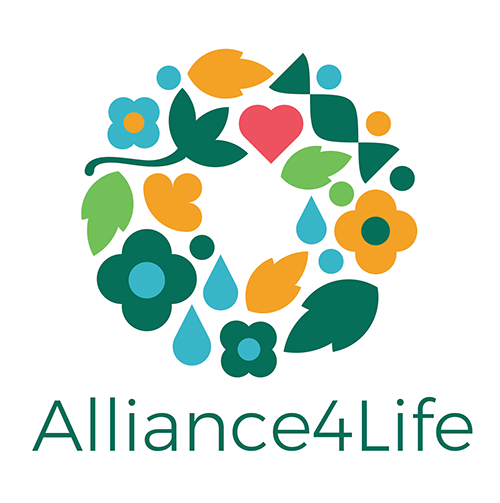
Policy Paper on Efficiency of Widening Measures was published
May 2023
The recently published policy paper on the Efficiency of the Widening Measures, presented by Alliance4Life, provides valuable insights and recommendations based on the experiences of twelve progressive life science institutions and universities from Central and Eastern European (CEE) countries. The paper focuses on the widening measures Twinning, Teaming, and ERA Chairs, examining their impact, challenges, and sustainability at both national and European levels.
The main objective of the document is to contribute to the strategic planning of Horizon Europe for the next period (2025-2027) and subsequent Horizon programmes. It builds upon Alliance4Life's previous recommendations for Horizon Europe and aims to address the research and innovation (R&I) gap between Western and Eastern Europe.
The findings are based on interviews with representatives from Alliance4Life member institutions who have been involved in various widening actions. The interviews revealed several positive outcomes, including improved scientific cooperation, enhanced grant writing skills and administrative capacity, increased researcher mobility, and the ability to attract distinguished researchers from abroad. However, concerns were raised regarding the allocation of resources in widening projects, suggesting that a greater proportion of funding should be directed towards research activities rather than networking and administrative tasks.
The policy paper presents key recommendations for the EU, national governments, and research institutions. Firstly, it suggests shifting the EU widening paradigm from supporting to empowering, emphasising the need to enable widening institutions to become R&I leaders themselves. This entails establishing schemes that allow for actual research and innovation activities, fostering a sense of leadership among researchers from widening countries, and recognising existing Centres of Excellence (CoEs) in these countries.
Secondly, the paper highlights the importance of coordination between the EU and national governments in terms of the concertation of R&I capacities. It calls for strategic coordination in establishing new Centres of Excellence, ensuring sustainability, and involving existing CoEs in research policy development processes at the EU level.
Thirdly, the policy paper emphasises the need for better coordination of calls and the utilisation of synergies between different funding instruments. It suggests harmonising the application process and scheduling calls to reduce the administrative burden on widening institutions. The establishment of a Seal of Excellence Community of Practice is proposed to facilitate information sharing and best practices.
Lastly, the paper stresses the urgency of speeding up strategic changes at national, regional, and institutional levels. It calls for national R&I reforms, modern career paths for researchers, an international-friendly environment, targeted infrastructure investments, support for excellent research, promotion of existing CoEs, and addressing administrative capacity issues.
In conclusion, the policy paper on the Efficiency of the Widening Measures provides valuable insights and recommendations to improve the effectiveness and sustainability of widening actions in the field of life sciences. By empowering widening institutions, improving coordination between EU and national governments, enhancing synergies, and implementing strategic changes, the EU can bridge the R&I gaps and create a more efficient and competitive European Research Area.
Download the short version of the policy paper HERE.
Download the full deliverable version HERE.
For more information:
Dr. Zlatuše Novotná
Alliance4Life Coordinator
zlatuse.novotna@ceitec.muni.cz
About Alliance4Life:
Alliance4Life is a bottom-up initiative of twelve leading life science institutions from eleven EU-13 countries that aims at closing the divide in European health research and innovation. Members of the Alliance are progressive research institutions with the necessary strength to stimulate institutional change.
Large-scale ESIF investments into the life science infrastructure alone could not close the R&I gap in Europe so far, financial support needs to be complemented by measures on research and innovation strategy at institutional and national levels. Institutions gathered in this Alliance believe that improving governance and managerial practices and transforming institutional culture, will enhance efficiency and increase return on investment.
Alliance members joined forces to share good practices in 2017 and successfully implemented their first Horizon2020 action during 2018-2019. Currently, Alliance4Life is implementing its second project. Alliance4Life intends to become a role model for institutions in less-performing regions and to serve as a hub of excellence through close collaboration with renowned European networks established in high-performing countries. The alliance strives to shape important science policies in the member countries and on the EU level.
Alliance4Life Partners:
- Masaryk University (CEITEC MU – Central European Institute of Technology), Czech Republic
- St. Anne's University Hospital Brno (FNUSA-ICRC – International Clinical Research Center), Czech Republic
- Biomedical Research Center of the Slovak Academy of Sciences (BMC SAS), Slovakia
- Medical University of Łodz (MUL), Poland
- University of Zagreb School of Medicine (UZSM), Croatia
- University of Tartu (TU), Estonia
- Vilnius University – Faculty of Medicine (VU), Lithuania
- Latvian Institute of Organic Synthesis (LIOS), Latvia
- University of Ljubljana (UL), Slovenia
- Semmelweis University (SU), Hungary
- Medical University Sofia (MUS), Bulgaria
- University of Medicine and Pharmacy (UMFCD), Romania


